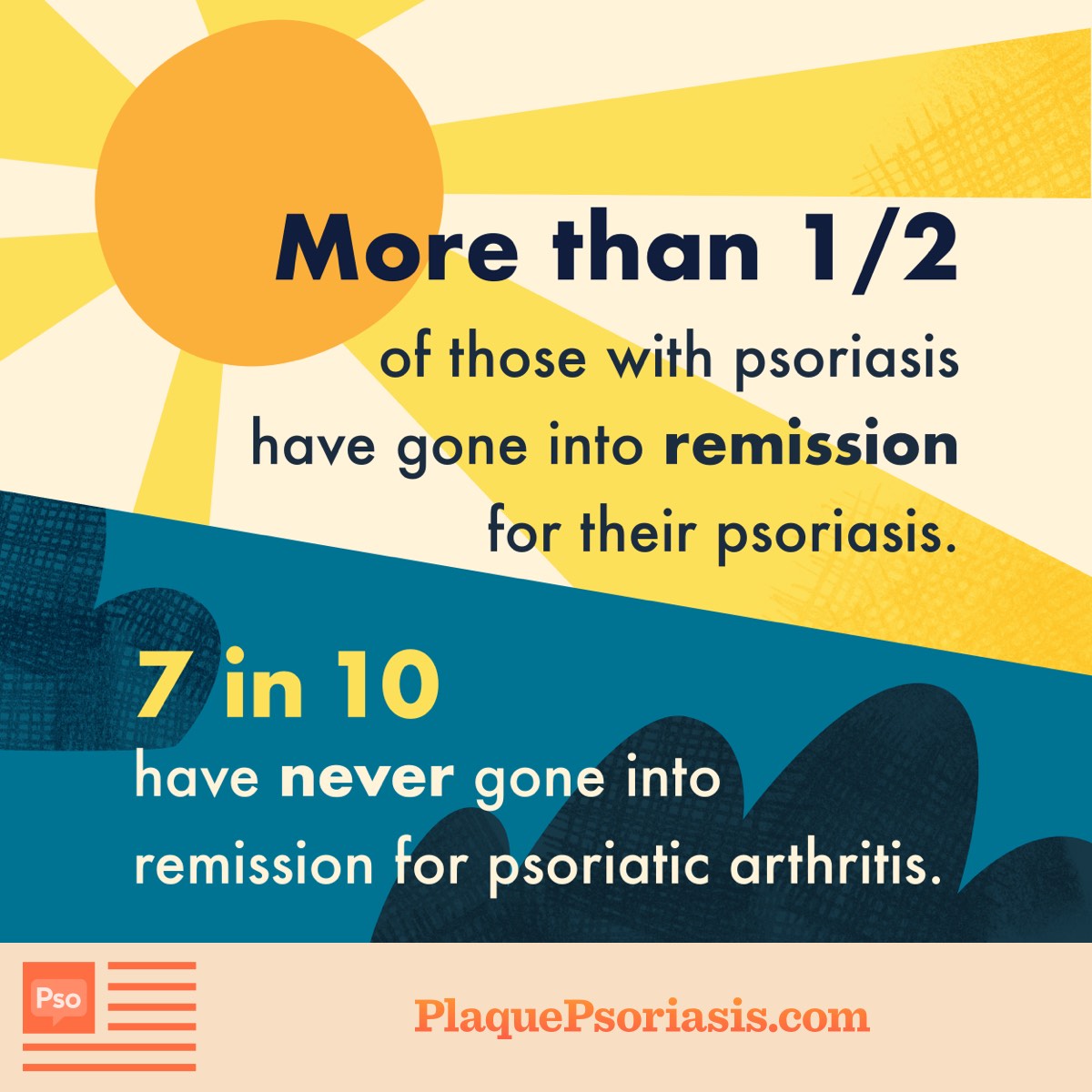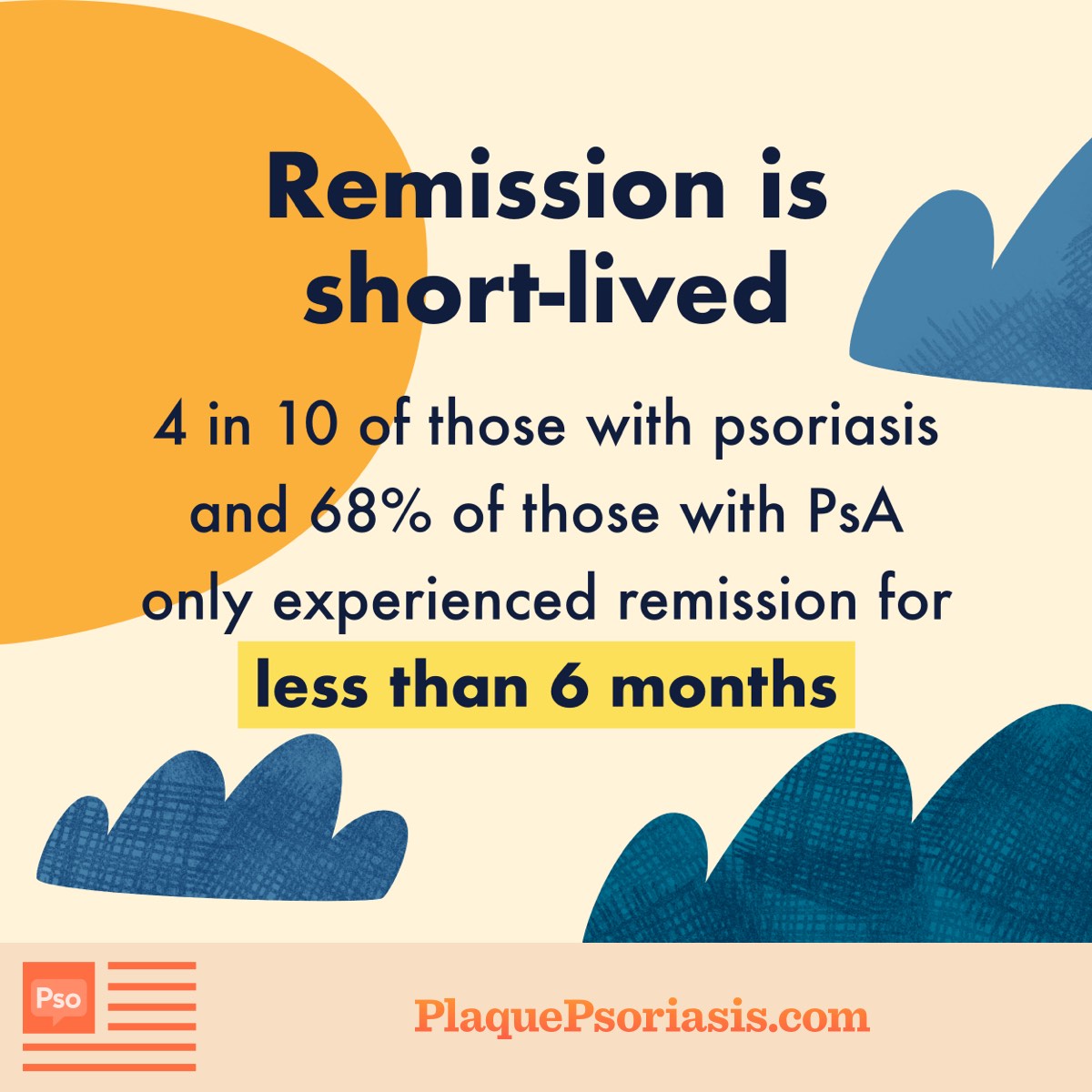The Connections of Psoriatic Disease: What Does Remission Look Like?
Our community and dedicated community members here at PlaquePsoriasis.com and our sister site Psoriatic-Arthritis.com help us understand the deep and painful connections of psoriatic disease. In addition to engagement within our forums, stories, and comments, we gain valued insight from our annual In America Survey, which surveys real people living with psoriasis and psoriatic arthritis.
We do not take this responsibility lightly. Our top priorities have been to reshare information we have learned back to the community to provide emotional support, important resources, and that right kind of reassuring validation.
Remission looks different for everyone.
Along with social listening and official survey results, we are eager to share some of the connections and disconnections we have found across the psoriatic communities. So much, in fact, that we have created a few articles. We have covered the connection of psoriatic flares, and provided insight into the real fears that come with facing progression. In this article, we will be focusing on the reality of remission.
For some people, psoriasis remission means your skin will clear almost entirely. With psoriatic arthritis, it depends on severity. Some people may have a very mild form of PsA and get it under control relatively quickly, whereas others may have very severe disease and have to try several medicines and combinations of medicines to find relief.
If it feels unreachable, that is because it is
There are no clear criteria for defining remission, and symptoms may not disappear for everyone. For some people, symptoms may subside enough to no longer be bothersome. This may still be classified as remission depending on your experience and history with psoriasis and psoriatic arthritis.
Only a small glimpse of relief
Psoriatic disease is unpredictable, and remission has no timeline. Sometimes, remission can be lengthy. You may not experience symptoms for months or even years. Remission can also be short-lived. You may start experiencing symptoms again within a few weeks of them disappearing.
What else does the community have to say?
Sometimes, psoriasis remission never happens. There may be a plaque or 2 that just wants to stick around longer than the rest of them, while treatment and medicine will not always achieve full skin clearance. It seems to be the way of the psoriatic world. We asked our Facebook community, "When the itch isn’t as severe, when plaques begin to disappear. What does remission look like for you?" Here are a few of their responses:
"Have not found out yet."
"When my psoriasis only covers my elbows and knees."
"I can no longer feel the bugs crawling under my skin."
"The itch goes from about an 8 to a 5."
Learn more about psoriasis remission
Direct from psoriasis advocates, let us take a look at the reality and their thoughts around remission. Clair shares how she experiences seasonal remission, specifically in the summer. Alisha sheds light on the topic of remission guilt and the importance of advocacy no matter how severe your condition. Joni shares her own experience with remission and how to maintain the ever-evasive clearance.
Katie even asks: Is psoriasis remission even a possibility?
We are here for you
Psoriasis can take a significant emotional and physical toll in so many areas of our daily life. Here at PlaquePsoriasis.com, we are a community that offers a safe place for sharing, support, validation, and kindness. However you feel comfortable getting involved, we are here for you.
- Create an account on PlaquePsoriasis.com
- Share your story
- Participate in our forums
- Follow us on Facebook, Instagram and Twitter
- Sign up for our newsletter



Join the conversation